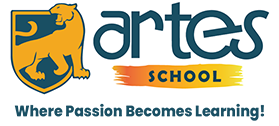
Why Early Learning Matters: Benefits of Parent-Toddler Programs
The early years of a child’s life are a period of incredible growth and development. It’s a time when their brains are rapidly forming connections, laying the foundation for future learning, behavior, and health. Recognizing the significance of this stage has led to an increasing emphasis on early learning initiatives, and among the most valuable are parent-toddler programs. These programs offer a unique blend of educational activities and parental involvement, yielding numerous benefits for both the child and the caregiver.
Nurturing Cognitive Development:
Parent-toddler programs provide a stimulating environment filled with age-appropriate activities designed to foster cognitive growth. Through play-based learning, children are exposed to new concepts, develop problem-solving skills, and enhance their curiosity. Activities like singing songs, reading stories, and engaging in sensory play help build vocabulary, improve memory, and spark imagination – crucial elements for future academic success.
Boosting Social and Emotional Skills:
Interacting with peers and adults in a structured yet supportive setting helps toddlers develop essential social and emotional skills. They learn how to share, take turns, cooperate, and express their feelings in healthy ways. Parent-toddler programs offer opportunities for children to build confidence, empathy, and a sense of belonging, which are vital for navigating social interactions throughout their lives.
Strengthening the Parent-Child Bond:
These programs actively involve parents in their child’s learning journey. By participating in activities together, parents gain firsthand insights into their child’s developmental milestones, learning style, and interests. This shared experience strengthens the parent-child bond, fosters better communication, and creates lasting memories. Furthermore, parents learn valuable strategies for supporting their child’s development at home.
Providing Parental Support and Education:
Parent-toddler programs often include a parent education component, offering workshops and discussions on various aspects of child development, positive parenting techniques, and common challenges. This provides a supportive network for parents to connect with others facing similar experiences, share insights, and learn from professionals. It can be particularly beneficial for new parents seeking guidance and reassurance.
Early Identification of Developmental Delays:
The structured environment of parent-toddler programs allows trained facilitators to observe children’s development closely. This can lead to the early identification of potential developmental delays or concerns, enabling timely intervention and support. Early intervention is crucial for maximizing a child’s potential and addressing any challenges effectively.
Preparing for Future Schooling:
Parent-toddler programs can serve as a gentle introduction to a more formal learning environment. Children become accustomed to routines, following instructions, and interacting with others in a group setting. This can ease the transition to preschool or kindergarten, making the experience less daunting for both the child and the parent.
Final Thoughts
In conclusion, parent-toddler programs play a vital role in fostering holistic development during the crucial early years. By providing a stimulating environment for children, strengthening the parent-child bond, offering parental support, and facilitating early identification of developmental needs, these programs lay a strong foundation for a child’s future success and well-being. Investing in early learning through parent-toddler programs is an investment in a brighter future for our children.
